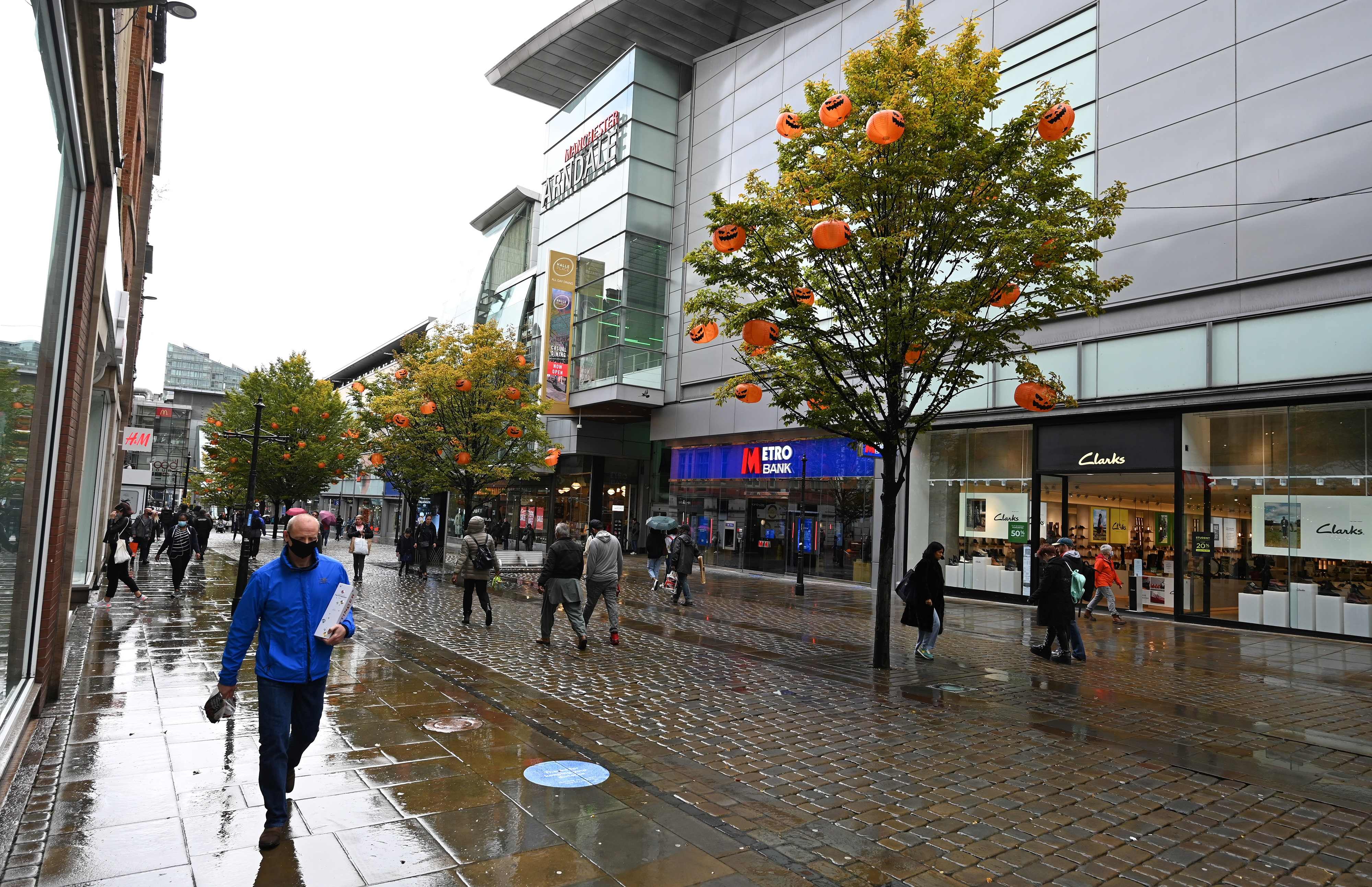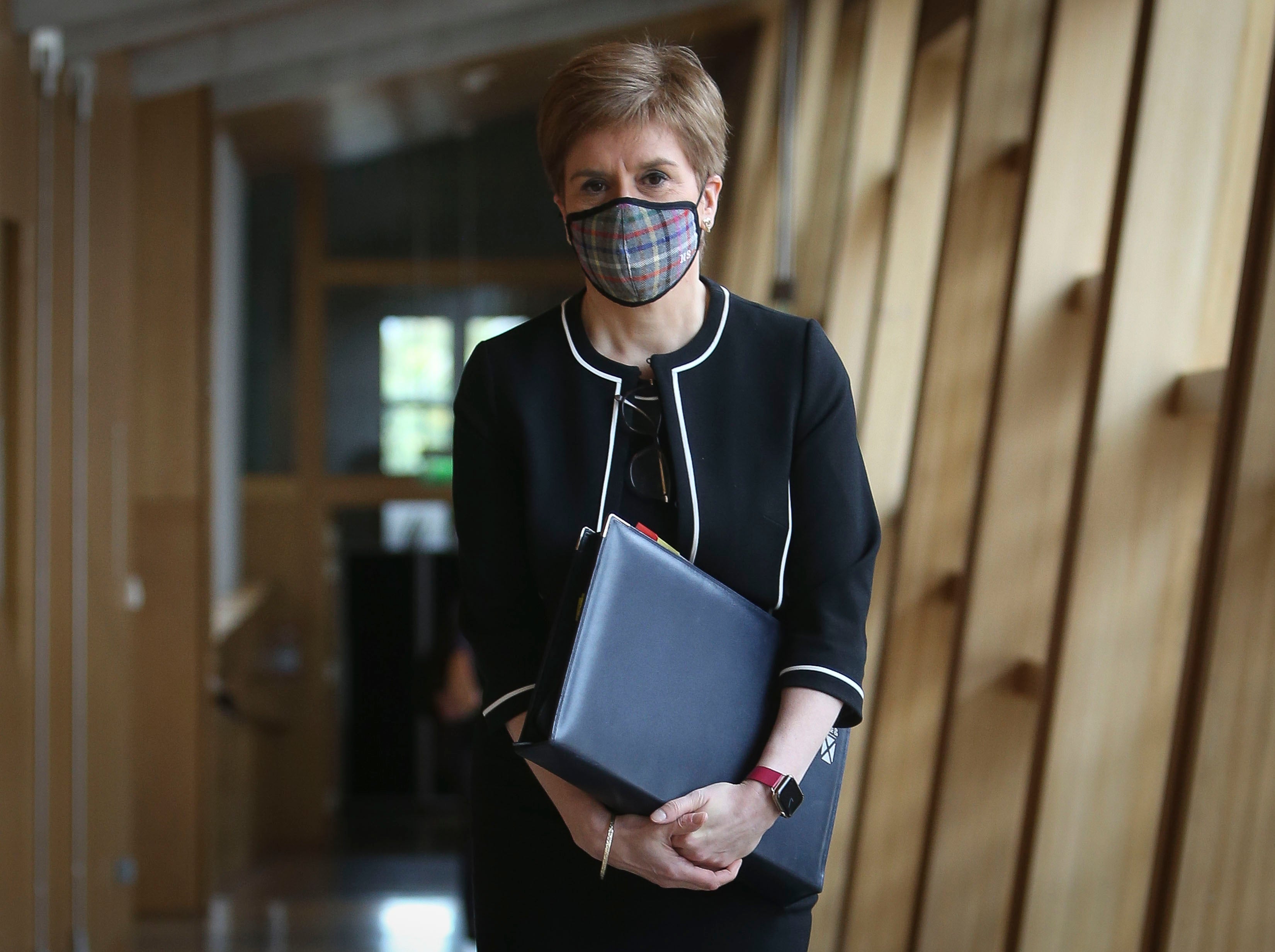Coronavirus news: Pubs reportedly face closure in new regional England lockdown
See how we covered Wednesday’s events live
Your support helps us to tell the story
My recent work focusing on Latino voters in Arizona has shown me how crucial independent journalism is in giving voice to underrepresented communities.
Your support is what allows us to tell these stories, bringing attention to the issues that are often overlooked. Without your contributions, these voices might not be heard.
Every dollar you give helps us continue to shine a light on these critical issues in the run up to the election and beyond

Eric Garcia
Washington Bureau Chief
Ministers are reportedly considering closing pubs and restaurants in regions of England, as part of moves to simplify lockdown rules with a three-tier system. The Independent previously reported on leaked documents revealing the plans in the works.
The reports by the Financial Times and BBC follow Nicola Sturgeon’s ban on pubs and restaurants in much of Scotland selling alcohol indoors for more than two weeks.
Scotland’s first minister insisted that the new measures were not a return to lockdown but she acknowledged the restrictions would “feel like a backward step” for many people.
The potential for drastic action to contain a second wave comes as Sir Simon Stevens, the head of NHS England, warned of a “disturbing” rise in hospital admissions of Covid-19 patients.
He told a virtual conference of NHS leaders: “Speaking frankly there are disturbing signs that infection rates from coronavirus are, again, rising. They are clearly headed in the wrong direction, not just nationally, but particularly in some regions and local areas across the country.
“At the start of September, we had under 500 coronavirus inpatients in hospitals across England. That is now nearly 3000. And we know that hospital admissions lag community infection by several weeks.”
Hello and welcome to The Independent’s live coverage of the coronavirus pandemic today.
New restrictions to be announced for Scotland as country faces ‘most difficult decision point’
Nicola Sturgeon is set to announce new coronavirus restrictions this afternoon in a statement to the Scottish parliament as she warns the country is facing “the most difficult decision point” so far in the pandemic.
Scotland’s first minister said the new measures would not amount to another full lockdown like in March but details of the package are still to be decided at a cabinet meeting this morning.
However, Ms Sturgeon has already ruled out a number of measures, such as school closures and Scotland-wide travel restrictions.
There will also be no requirement for people to stay inside their homes most of the time, as was the case in March, though some additional measures in “hotspot” areas might be necessary.
“The situation is not out of control, but it is a cause of increasing concern,” Ms Sturgeon said, as she warned infections from younger sections of the population were beginning to spread to older age groups.

Daily hospital admissions jump by nearly 25 per cent in England
The daily number of people admitted to hospital with coronavirus in England has jumped by nearly 25 per cent in a worrying sign of how the country’s epidemic has grown.
The government said 478 people were admitted to hospital on Sunday, the largest daily figure since early June, up from 386 on Saturday.
More than two-thirds of the admissions were in the North West, North East and Yorkshire - areas which have some of the strictest coronavirus rules.
It came as Professor John Edmunds, an advisor for the government’s scientific advisory group, said “much more stringent measures” were needed to control the virus.
“We are starting to get to a point where we really will have to take really critical action otherwise we are going to run the risk of turning the National Health Service back into the national Covid service,” he told the BBC’s Newsnight.
“These local restrictions that have been put in place in much of the north of England really haven’t been very effective.
“We need to take much more stringent measures, not just in the north of England, we need to do it countrywide, and bring the epidemic back under control.”
Three universities shift to online classes to protect students and staff
Three major universities have shifted to online classes to protect the health of students and staff from coronavirus outbreaks in their halls and campuses.
More than 50 universities in the UK have confirmed cases of Covid-19 following the start of the autumn term last month.
Manchester University, where there have been 382 coronavirus cases since 21 September, joined with Manchester Metropolitan University and the University of Sheffield in announcing a move to online learning this week.
The Manchester universities said they had made the decision to end face-to-face teaching until 30 October together in consultation with the area's director of public health, supported by Public Health England.
They added that face-to-face teaching would continue for some clinical or practice-based classes.
The University of Sheffield - where nearly 500 students and staff have tested positive since the start of term - said face-to-face teaching would continue on Wednesday and Thursday before it is suspended from Friday, with in-person classes to resume on 19 October.
PA
Liz Truss defends coronavirus restrictions amid criticism
International trade secretary Liz Truss has defended the government’s coronavirus restrictions across England but said ministers would keep them under review as case numbers rise.
“We are working very carefully right across the country to make sure we've got the right measures in place to restrict the spread of the virus and of course we are keeping that constantly under review,” Ms Truss told BBC Breakfast.
“What's really important, though, is that we don't want to go back to a second lockdown where we end up having to close down the economy and the potential damage that has on people's livelihoods.”
She added: “This is a moving situation, as you've mentioned we have seen a rise in some of those areas, so of course our advisers will be looking at that and telling us what is the appropriate step to take next.”
Northern leaders reject harsher lockdowns and tell Johnson to put them in control
Northern leaders are in revolt over the possibility of even stricter coronavirus rules in their cities ahead of an expected announcement by Boris Johnson within days.
The leaders of the Leeds, Liverpool, Manchester and Newcastle city councils have written to the government, calling for the prime minister to put them in control of managing outbreaks in their areas.
“The existing restrictions are not working, confusing for the public and some, like the 10pm rule, are counter-productive,” the leaders said.
Our deputy political editor, Rob Merrick, has the full story below:

Northern leaders reject harsher lockdowns and tell Boris Johnson to put them in control
‘We do not support further economic lockdowns,’ four city council bosses tell prime minister - as he mulls just that
Dr Rosemary Leonard, an NHS GP and journalist, has a slight caveat for yesterday’s rise in Covid-19 hospital admissions.
She told BBC Breakfast this morning that hospital admissions tend to rise at this time of year so it is not yet clear if the spike is primarily due to coronavirus.
Primary school children less likely to spread coronavirus, Sage scientist says
A member of the government’s scientific advisory group (Sage) has said evidence shows that primary school children do not play a major role in spreading coronavirus.
“We're quite confident now that primary school children are probably a quarter to half as likely to become infected and are also much less likely to pass the infection on,” Professor Calum Semple, a professor of child health and outbreak medicine at the University of Liverpool, told BBC Radio 4’s Today programme.
“So there's growing evidence that primary school children are not amplifying this disease.
“Then, in secondary school children, again it's less than adults, but it's a gradient of effects such that sixth-formers are probably about the same risk as adults, but that data is slightly less stable.”
When asked whether secondary schools should remain open, Professor Semple said it was a matter of balancing the harms of closure, such as disrupting children’s education.
He also suggested there was an argument for taking primary school-aged children out of testing altogether.
Our reporter, Clea Skopeliti, has this morning’s round-up of the coronavirus stories you may have missed overnight below:

Coronavirus news you may have missed overnight
The new rules will not send Scotland into a second national lockdown, Ms Sturgeon says
‘Circuit breaker’ restrictions should be considered nationally, Sage scientist says
A “circuit breaker” period of tightened restrictions across the UK should be considered to help control the spread of coronavirus, a government scientific advisor has said.
Speaking in a personal capacity, Calum Semple, from the University of Liverpool, told BBC Radio 4’s Today programme that the measure “would have been a really good idea” a couple of weeks ago.
“It's always easier to reduce an outbreak at the earlier stage than to let it run and then try to reduce it at a later stage,” the Sage member said.
“So, yes, circuit breakers are certainly something we should be thinking about on a national basis.”
Subscribe to Independent Premium to bookmark this article
Want to bookmark your favourite articles and stories to read or reference later? Start your Independent Premium subscription today.

Join our commenting forum
Join thought-provoking conversations, follow other Independent readers and see their replies
Comments